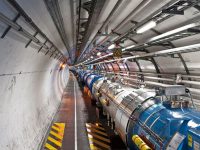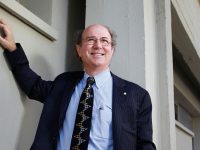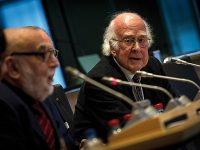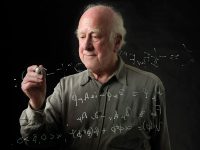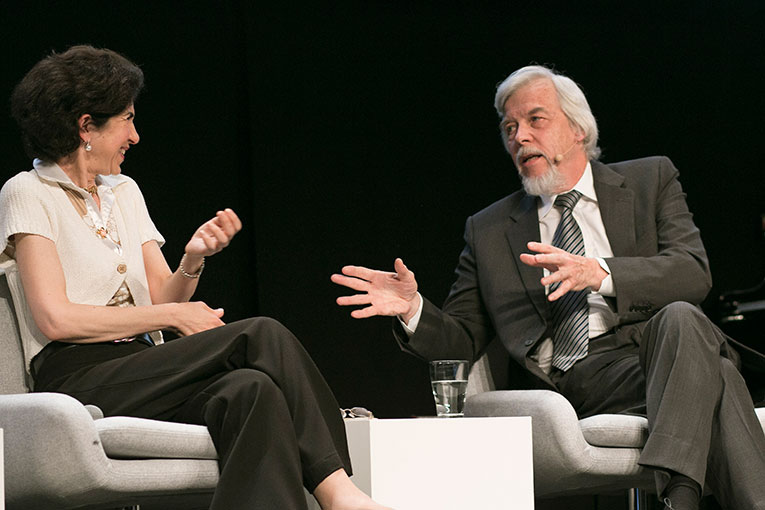
 Mikkel Ostergaard/ESOF2014 Mikkel Ostergaard/ESOF2014 |
||
|
Pages and pages have been written about the Higgs boson in the media, even before the official announcement of its discovery on 4 July 2012. Two years later, CERN continues discovering new properties of this particle, as shown by the results of the CMS experiment published this week in the journal Nature Physics. But apart from these new results, the famous particle still generates buzz around it. This was proved this week in Copenhagen, during the number of sessions of ESOF 2014 that revolved around the boson, including a dialogue between Rolf Heuer and Fabiola Gianotti during the opening ceremony. Gianotti, who announced the great discovery of CERN because she was the spokesperson for the ATLAS experiment at the time, justified the social and scientific interest in the fact that it is a «very special» particle. The teacher summed it up this way: «The Higgs boson is a key particle to understand how our universe is made in the way is made.» To which the director of CERN laughingly added: «You would not exist without this particle, so you ought to be very grateful to have discovered why you can exist.» But does the public know what this particle is and what it tells us? According to Professor Heuer, «we underestimate the general public, they really are interested in science.» And the director of the Geneva research centre wanted to put the conversation he had with a taxi driver as an example. When he realised who was his passenger, he exclaimed, «CERN… I know what you are doing there. I watched the film Angels & Demons. And I found it so interesting that now I watch your webpage every day.» Professor Heuer just wanted to add to the story: «And that’s what we need.» |
«The famous particle still generates buzz around it. This was proved this week in Copenhagen, during the number of sessions of ESOF 2014 that revolved around the boson» |
|
 Mikkel Ostergaard/ESOF2014 Mikkel Ostergaard/ESOF2014 |
||
|
Science and religion, a current debate The Higgs boson is neither the only experiment nor the only discovery made by CERN, but it is certainly the best known by the general public. How did the media nickname «God particle» affect its coverage? «I don’t like that nickname», Rolf Heuer stated in a press conference this week, following Higgs opinion on the matter, expressed on several occasions; «But I accept it», he added diplomatically. Fabiola Gianotti went a step further, and despite agreeing with Heuer in their opinion about the name, she justified the choice: «This is the most special particle we have discovered, and in a way, the God particle nickname goes on to say that.» The relationship between science and religion is not without controversy; maybe that’s why, in a gesture of rapprochement between the two positions, the director of CERN and Pope Francis met in the Vatican in May. During the meeting the pontiff expressed his interest in the debate between philosophy, theology and science. «The Pope was very interested in the difficulty of finding a common language for all of them», Heuer said, and added that speaking as a scientist or a theologian, one often loses perspective of the other groups. The issue was also discussed this week at a seminar in Divonne (France) under the title «The Big Bang and the interfaces of knowledge: towards a common undestanding of Truth?», in which scientists at CERN, philosophers and theologians were also involved. A clash between two different ways of understanding the world that will continue creating friction with every new result in CERN about the origin and composition of the universe, because, as Fabiola Gianotti claimed this week, «the discovery of the Higgs boson was only the beginning of the LHC journey». Anna Mateu. Assistant Editor of Mètode, Copenhagen. Further information Boson Rhetoric |
|
|

 Mikkel Ostergaard/ESOF2014
Mikkel Ostergaard/ESOF2014
